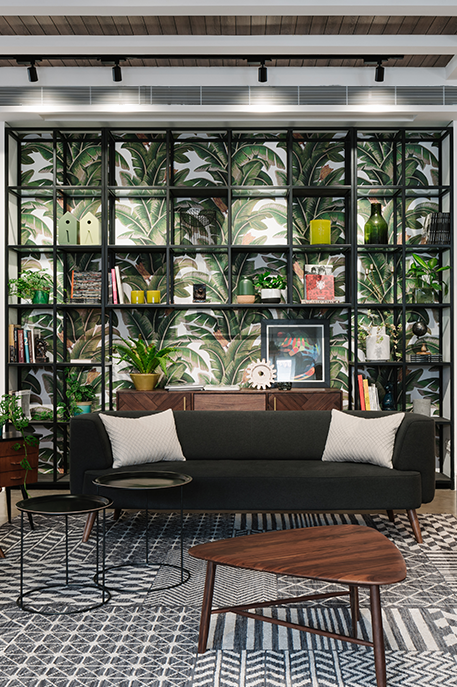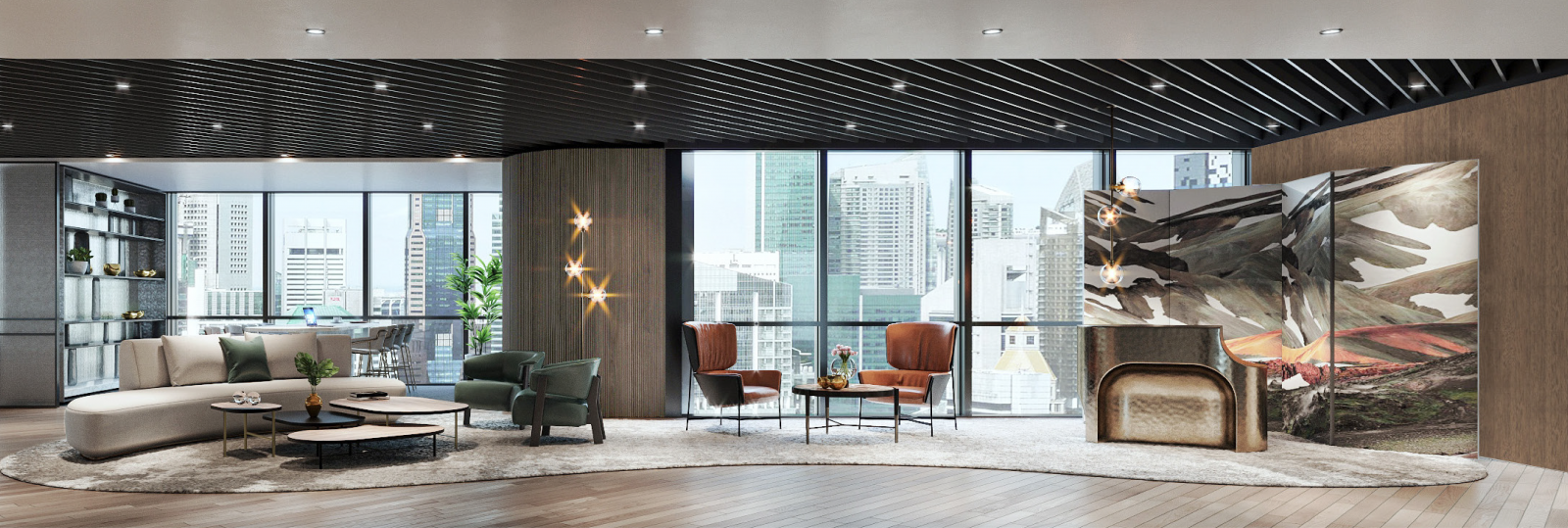As most non-essential businesses around the world shutter their doors and workers begin shacking up in their home offices, some might wonder: is this the end of the office as we know it?
Not for Arcc Spaces CEO Justin Chen. The purveyor of over 20 luxe and bespoke co-working spaces across Asia might have his own swishy home office — one drenched in natural light that looks out into tree-lined streets — but he’d much rather be in the office proper, pandemic notwithstanding.
And he’s not saying that just because. “The reality is that it’s not easy working from home,” he says. “It requires a dedicated space, and strong discipline about managing work-life balance.”
“On top of that, all our video-conference meetings and remote working has exposed the great value of face-to-face meetings, and our deep desire for social interactions.”
That’s why Chen thinks that offices aren’t going extinct any time soon — though he does believe that they’re due for a facelift.

(Image: Arcc Spaces)
“Offices of the future will respond to our social tendencies, rather than just on focused, solo work,” says Chen, whose father founded investment holdings company Arcc Holdings, of which Arcc Spaces is a subsidiary of. “They’ll put more weightage on front-of-house features, like supporting meetings, events and collaboration. The office should be a space for interaction and dialogue, a space for people to come together.”
His solution? Smart co-working spaces. And not just the generic ones that promise a desk and high-speed WiFi — which should be a given, anyway — but co-working spaces that, in turn, work for the myriad companies that reside in it.
The ethos is best seen in two of Arcc Spaces’ Singapore properties. Take their upcoming flagship workplace at One Marina Boulevard, for example. With panoramic views of Marina Bay, it might have been easier to slap some glass windows on it and call it a day.

(Image: Arcc Spaces)
Instead, Chen decided to play to the nature of the businesses and workers in the area. He outfitted the spaces with rich, warm palettes to pair with the financial and consulting industries that made up the bulk of the area’s business: the rationale being that it is, of course, much easier to close deals and operate in an ostensibly high-stress industry when you’re ensconced in a space that’s designed to soothe you.
Chen is fond of adding character to Arcc Spaces’ projects. Their Duxton Hill outpost draws on the heritage elements of the shophouse that it occupies, and is replete with mosaic tiles, tropical motifs, and slick brass-and-wood finishes — befitting for the creative agencies and design firms that gravitate to the hip neighbourhood.

(Image: The Co.)
He has his experience to thank for that. As a Berkeley Architecture alum, Chen planned and designed retail spaces for some of the world’s biggest brands: think Apple, Starbucks, and Levi’s.
“What that experience taught me was just how design and business can really be partners,” he says. “One thing that these are brands had, even back then, was a deep understanding of their customers — and that translated into a lot of insights into how these spaces should be designed.”
And as much of an aesthete as Chen is, he always views his projects as a problem-solving exercise, rather than one that’s purely aesthetic in design — an approach that has served him well in his decade-long career.
“We’re not interested in a mass-market product,” says Chen. “We want to take a bespoke approach — by being able to address specific needs, rather than taking cookie-cutter approaches, is where I feel we create value.”
